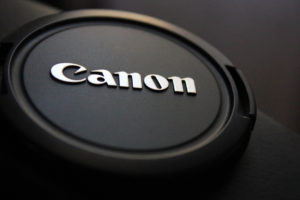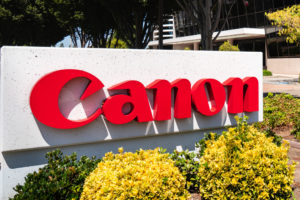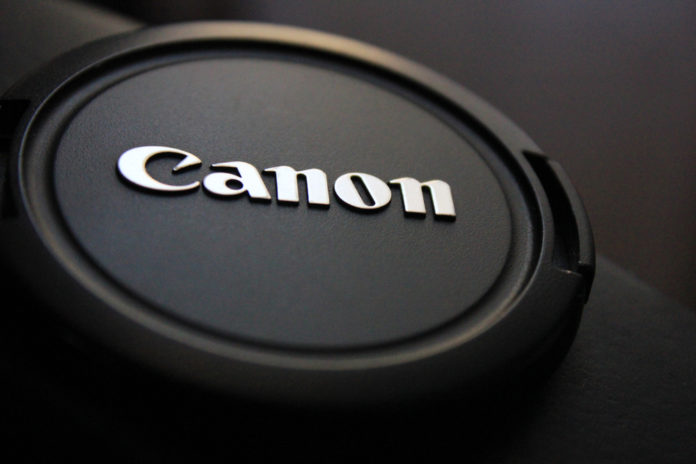The district court adopted a magistrate judge’s recommendation to grant summary judgment in favor of the defendant in a qui tam case, finding that the case was barred by the government action and public disclosure bars. In an earlier case, the relator alleged a different entity defrauded the government by failing to honor GSA’s most-favored customer pricing and by providing products that included components from non-designated countries. That action was settled by the government and the relator in 2013. In this case, the relator alleged that Canon continued this fraud after it purchased the original defendant and novated its contracts, but argued that her claim was not barred. The court disagreed, finding the actions substantially similar and that the relator did not qualify as an original source because she no longer worked for either company during the period of the alleged fraud in the second action.
Canon Inc. moved for summary judgment in a qui tam case alleging the firm overcharged the government for copiers and services and provided copiers that were manufactured in non-designated countries, arguing that the claims are barred by the public disclosure bar or the government action bar.
In short, Canon argued that Schweizer’s claims were raised previously in her qui tam lawsuit against Oce North America Inc., before it was acquired by Canon. The government and Schweizer settled that case with Oce in 2013.
Because the public disclosure bar applies even when the disclosure is made by a plaintiff-relator in another lawsuit, and because the government was a party to the Oce action when it intervened for purposes of settling some, but not all, of the claims alleged, the magistrate judge concluded that the FCA claims alleged in this action are based on and are substantially similar to those raised in the Oce action, and were therefore preclude by both the government action and the public disclosure bar.
The district court adopted this recommendation, noting that the timing of the claims and allegations was important to the magistrate judge’s conclusion. Schweizer was employed by Oce from November 2004 to December 2005, and filed her original qui tam action in 2006. That case was settled in 2012. Prior to that action becoming final, Canon purchased Oce. In her current action, Schweizer makes claims based on conduct that occurred from 2010 to 2016, both before and after Canon acquired Oce. Schweizer’s claims are based on conduct by Canon after its acquisition of Oce, and on conduct of Oce prior to its acquisition by Canon.
The current action alleged Canon engaged in commercial pricing fraud and trade agreement fraud in relation to two General Services Administration contracts. Specifically, Schweizer alleged Canon/Oce failed to give GSA customers most favored customer pricing and sold the government items that included components obtained from non-designated countries. In general, the claims match the original claims in the first Oce action, and Schweizer basically alleged that Canon continued the fraudulent activity after its acquisition of Oce.
Schweizer argued her current case was not based on the allegations in the Oce action, and that the government action bar only applies when the government is party to a live case. Because the Oce action had concluded prior to this action being filed, Schweizer argued the government action bar did not apply.
The court found that the latter argument—that the government needs to be a current party to a current case for the government action bar to apply—had no merit, as the government is still a party to a lawsuit that has reached a conclusion. In addition, even though the government only participated in the Oce action for purposes of reaching a settlement, it is considered to have been a party to the entire case.
The court also rejected Schweizer’s assertion that her case was not based on the same allegations as her first action because Canon was not a party to the first lawsuit and because the fraud occurred at a later date. The court agreed with the magistrate judge that the claims were substantially similar and that the case received substantially support from the earlier action without giving the government any useful return. The alleged fraudulent schemes were identical, involved the same products and services, and in part occurred before the original case was settled. The complaints also involved at least one identical contract. Given that substantial overlap, the court saw no path to concluding the cases were based on different allegations.
For substantially the same reasons, the court found the public disclosure bar also implicated, as the While Schweizer again argued that Canon was not a party to the original case, the court explained there does not need to be complete unity of allegations, parties or time-frame for the allegations in this case to be based upon the publicly disclosed allegations in the Oce case. According to the court, all there need be is sufficient evidence in the record, when comparing the allegations of fraud in the qui tam case with the contents of the identified public disclosures, that an inference of fraud could have been made from the public disclosures. The court found this to be the case here.
Because there are no allegations that Canon did anything new or materially different than Oce, and because an inference could have been made that Canon continued the allegedly fraudulent conduct alleged in the Oce action following its acquisition of Oce, the court held Schweizer had not raised a genuine issue of material fact on whether the allegations in this case were “based upon” the publicly disclosed allegations and transactions in the Oce action.
Finally, given the timeline of the alleged fraud in the second case, the court held Schweizer could not be shown as an original source of the information. Schweizer left Oce’s employ several years before the alleged fraud and before Oce was acquired by Canon, and therefore was not privy to any internal information that could support her allegations against Canon. Without direct and original knowledge, Schweizer could not be considered an original source to the extent she could overcome the public disclosure bar.
Schweizer argued that the allegations against Canon were not publicly disclosed because her initial complaint named Oce. In the alternative, she argued that if the government was on notice of the alleged Canon fraud based on the Oce complaint, then she was the original source. However, the court rejected this circular argument. Under either standard, the court found the latter complaint barred.
After the court issues its opinion, the relator objected to the application of both the public disclosure and government action, and the government objected to the application of the government disclosure bar. Because the court found the action barred by the public disclosure bar, it concluded it need not reach a decision on the merits of the government’s objection to the application of the government disclosure bar.






